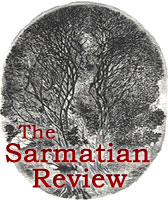| This Issue | Back Issues | Editorial Board | Contact Information |

Writing a Usable Past: Russian Literary Culture, 1917-1937
Reviewer: Maria Rubins
Writing a Usable Past: Russian Literary Culture, 1917-1937
By Angela Brintlinger. Evanston, Illinois: Northwestern University Press, 2000. 304 pages. Hardcover. $79.95.
Focusing on Soviet Russian biographical writing between 1917 and 1937, Professor Angela Brintlinger aptly employs the formula of a "usable past," articulated in a 1918 essay by American critic Van Wyck Brooks. While Brooks's idea that the past can be used to interpret and understand the present is not particularly original, it epitomizes the quest of Soviet Russian literature to find historical heroes relevant for the contemporary generation. Among Brintlinger's primary subjects are Vladislav Khodasevich, Iurii Tynianov, and Mikhail Bulgakov who penned fictionalized biographies of prominent Russian and European writers in an attempt to explain the predicament of a creative personality both in the Soviet Union and in émigré communities. Her examination of the texts involves an inquiry into three theoretical problems of the biographical genre: the reader's pre-existing knowledge, the mechanics of transforming "fact" into "fiction," and the relationship between biographical and autobiographical material.
Brintlinger begins her discussion with Iurii Tynianov, a scholar-turned-novelist whose main contributions to the genre of biography are his three novels, Kiukhlia, The Death of Vazir-Mukhtar, and Pushkin. The second novel, focusing on Alexander Griboedov's last days, was published in 1929 and was by far his most successful project. While Tynianov created a truly Soviet book, "scientifically" transforming the past into a lesson for the present, The Death of Vazir-Mukhtar is also innovative in other ways. This "scientific" novel reveals an analogy between the reigns of Nikolai I and Stalin, and it incorporates a great deal of auto-referential material, especially concerning the compromise both Griboedov and Tynianov made with repressive political regimes. By contrast, the novel Pushkin, which Tynianov had been writing for ten years but left unfinished at the time of his death in 1943, is the least experimental of his works. Tynianov undertook to write about Pushkin in conjunction with the centenary of the poet's death, a morbid anniversary celebration staged by Stalin with all due pomp in order to claim the best of the pre-revolutionary cultural heritage. The commission was tempting, but the project soon got out of hand because Tynianov became so engrossed in details that he only described the first 21 years of Pushkin's life.
The centenary of Pushkin's death was marked by Russian émigré intellectuals with just as much zeal and determination. Delving into the celebrations sponsored by Russians in Paris, Brintlinger reveals Pushkin's posthumous role in legitimizing the claim of the emigrant community to the title of the sole guardian of Russian cultural heritage. Vladislav Khodasevich, who began his Pushkin studies while still in Russia, promised a biography of the poet by 1937 but delivered only an incomplete, fragmentary text. Despite Pushkin's significance, his life, according to Brintlinger, did not offer Khodasevich a "usable" past. Khodasevich was unable to present Pushkin as an organically integrated man and poet. He tended to focus more on the poet's life than his art, emphasizing Pushkin's baser character traits such as dissipation, slothfulness, rowdiness, and social insecurity.
Gavriil Derzhavin, on the other hand, incarnated a "healthy" balance between life and art for his twentieth-century chronicler. Khodasevich wrote Derzhavin's biography between 1929 and 1931. Seeking to refute Derzhavin's reputation as a court poet, he built the text around the categories of God, the monarch, and the law, themes equally important for both the biographer and his subject. Khodasevich's Derzhavin is a public figure and a public poet, an archetypal positive hero. Since Khodasevich himself was a private person and a loner, diametrically opposed to the gambler, carouser, and gourmand Derzhavin, this biography was not inspired by personal identification, but rather conceived as a recipe for cultural regeneration. Khodasevich considered Russian culture to be nearing the end of a cycle that began with Derzhavin, and he strove to create a viable model from the past to inspire his contemporaries to further development.
Brintlinger introduces Mikhail Bulgakov as a writer who turned to the past in a search for his own immortality. He found some "usable past" in the images of Moliere and Pushkin, through whose experience Bulgakov filtered his own. The stories of these two writers served as fertile ground to investigate the relationship between artist, king, and ideological establishment. In his novel about Moliere, commissioned for the series Zhizn' zamechate'nykh liudei, and in the play Kabala sviatosh [a cabal of hypocrites], Bulgakov demonstrates his belief that a king would intervene to protect a playwright from the ideologues who strove to silence him. This cautious optimism is a reflection of Bulgakov's personal relations with Stalin. By the time he began to collaborate with Vikentii Veresaev on a play about Pushkin, however, any illusions Bulgakov had about benevolent intervention from above were gone. Pushkin is therefore presented as persecuted by society, the secret police, and the tsar himself. Ultimately, through Pushkin, Bulgakov expressed his pessimistic reassessment of the possibilities for artists in the Soviet Union. Among the three authors who wrote about Pushkin in the 1930s, Bulgakov was the only one to complete his task. Sadly, his Pushkin play was banned, as were his works on Moliere.
Angela Brintlinger's book is fascinating, and her approach to biographical writing from the position of the "usable past" is highly original. This perspective has allowed her to penetrate deeper into the psychology of the writers she considers, while correlating individual motives with a larger political agenda that created demand for a particular type of biography. Brintlinger demonstrates that the concept of "usable past" can be successfully applied in other studies of biography and historical fiction.
Back to the September 2001 issue
The Sarmatian Review
sarmatia@rice.edu
Last updated 9/17/01